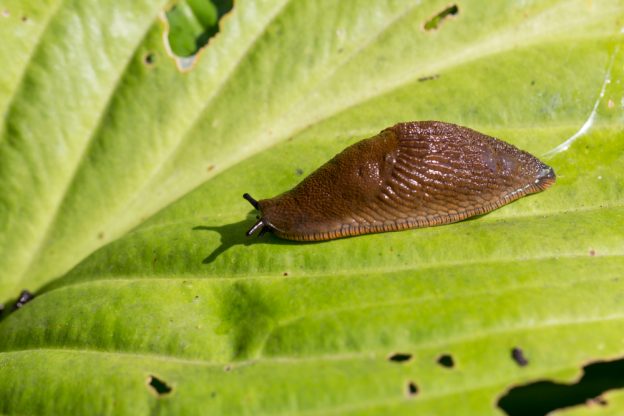Slugs are widespread animals that can cause problems in the garden such as eating holes in leaves, stems, flowers, tubers and bulbs.
As the leading supplier of raised garden beds for customers across Shropshire and Staffordshire, Weston Sawmill understands the importance of keeping your greenery safe from the threat of slugs.
They can cause damage all year round on different types of plants, but seedlings and new growth on herbaceous plants in spring are the most vulnerable.
For our latest blog, we are going to share some handy tips on how to combat slugs in your garden.
Identifying Attacks from Slugs
Many plants that can be affected by slugs are ornamentals, plus vegetables in gardens and greenhouses with symptoms to be wary of including holes in –
• Leaves
• Stems
• Flowers and potato tubers
Please note that seedlings can also be killed.
The majority of slugs feed at night and if their slime trails are present; can give you an indication of the level of activity. Damage is typically most severe during warm humid periods of the year.
Hostas, delphiniums, dahlias, gerberas, sweet peas and tulips are regular targets for slugs making it difficult to grow these plants if you have a problem with slugs.
Vegetable garden peas, beans, lettuce, celery and potato tubers can also be damaged.
Larger slugs feed primarily on decomposing organic matter such as dead leaves dung and in some cases, dead slugs. In compost heaps, they can actually be a valuable part of the composting process.
Grow Plants in Peace with Weston Sawmill
Scattering slug pellets thinly around vulnerable plants such as seedlings, vegetables and young shoots on herbaceous plants will help combat slugs.
It is important to store pellets safely and scatter them thinly as they can harm other wildlife, pets and young children if eaten in quantity.
There are currently two types of slug pellet approved for garden use, which are based on metaldehyde and those based on ferric phosphate – with the latter approved for use by organic growers.
Contact Us for More Information
If you need any more advice about keeping your garden thriving or want to know more about any of our products, please get in touch today.

